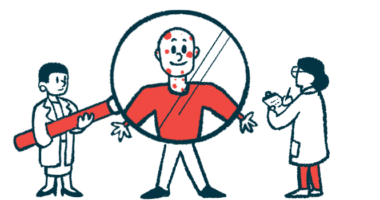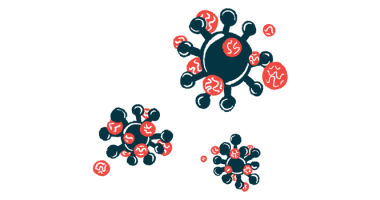Keeping Track of the Journey

Dealing with a rare disease diagnosis is often referred to as a journey. It may be toward a cure or to new ways of coping. It may include actual travel to meet with specialists, receive experimental treatment, or participate in clinical trials. Or it may preclude physical excursions, as the patient learns to navigate life with limitations. These journeys can be long and hard, but they are experienced one day at a time.
The word “journey” comes from the Old French word “jour,” which means “day.” This is the same root for the word “journal,” in which travelers who make their way across continents and through challenges record their daily adventures. Since my husband, Ronald, and I embarked on our journey from his aHUS diagnosis almost six years ago, I have found a journal to be a great companion and guide.
The medical journal
When we came home from the hospital, I opened a big blank book in which I made meticulous entries throughout the day. I noted blood pressure and temperature and wrote down what he ate and when, as well as when he slept and for how long. At the top of each page, I made a series of boxes to check, ensuring that I delivered morning and evening meds and flushed his PICC line every day. Below these numbers and lists, I often made notes on subjective aspects of his day, such as energy level and mood.
This handwritten log accompanied us to his medical appointments and was a valuable resource. While the doctors tracked his periodic lab test results, I kept a real-time record of the ups and downs and side effects of his treatments. By the time two such books were filled, my patient’s condition had stabilized and his medications had been simplified.
Since then, I have scaled back to a simpler log of vital signs, with the occasional note, in my phone.
The personal story
I have kept a journal for decades, sometimes conscientiously and at other times sporadically. The result is an odd collection of elegantly bound diaries, followed by a series of cheap spiral notebooks of various sizes and conditions. This assortment of volumes chronicles my passage from idealistic to practical in both form and content.
Ironically, when life is at its most dramatic, I tend to be the least diligent in documenting it. I could make much ado about nothing with long entries on lazy days, but what would be the point? And when events and emotions are flying, I lack the time or focus to record them.
I solved this dilemma about a dozen years ago, with the five-year, one-line-a-day format. It provides just enough space to jot down the most important or interesting tidbit of the day. And it is a fascinating way to look back and compare and contrast the years in a single page.
For the record
My husband’s medical journals and my personal ones are helpful archives for us to look back on now. Documenting his therapeutic journey and our practical and emotional challenges has provided us with proof of progress over the years.
When we get discouraged, it helps to see how far he has come in regaining strength and stamina. And when we encounter new obstacles, these records offer some perspective. In both cases, they help us to discern the difference between the need for action or acceptance.
Sometimes, these journal notes encourage us to persevere. Other times, they confirm that we have arrived at what had seemed an impossible destination when our journey began.
Note: aHUS News is strictly a news and information website about the disease. It does not provide medical advice, diagnosis, or treatment. This content is not intended to be a substitute for professional medical advice, diagnosis, or treatment. Always seek the advice of your physician or other qualified health provider with any questions you may have regarding a medical condition. Never disregard professional medical advice or delay in seeking it because of something you have read on this website. The opinions expressed in this column are not those of aHUS News or its parent company, BioNews, and are intended to spark discussion about issues pertaining to aHUS.








Comments